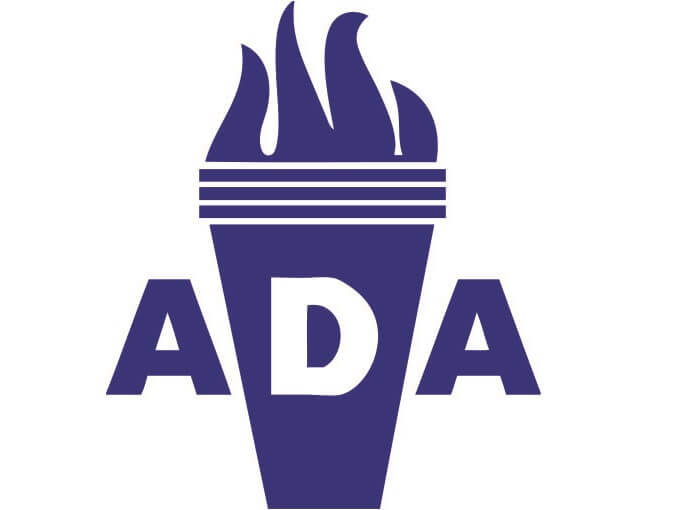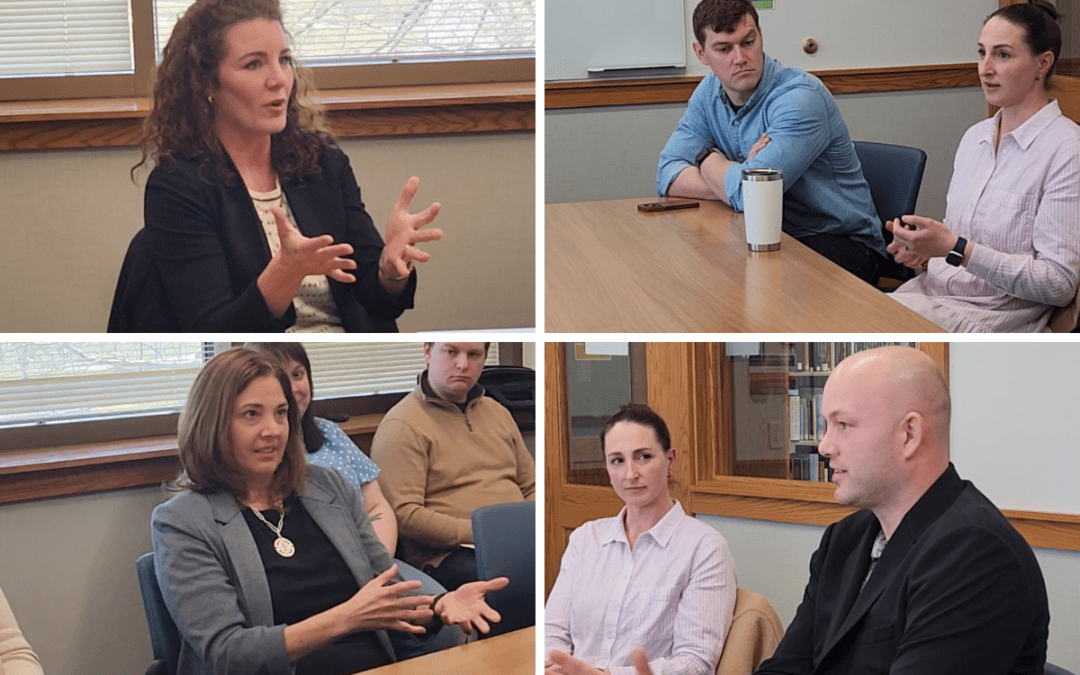
Guest post by Kurt Meyer
A year ago, I joined the Board of Directors of Americans for Democratic Action, a national organization committed to liberal politics, liberal policies, and a liberal future. The ADA, founded in the 1940s by an impressive coterie that includes Eleanor Roosevelt and Hubert Humphrey (my political hero!), strives for social and economic justice through grassroots organizing and support for progressive policies and candidates. As a board member, I proudly represent the Iowa Chapter, one of the strongest, most effective ADA regional entities.
While there are several reasons for the strength of the Iowa ADA, foremost among them is Chris Schwartz: a thoughtful, committed, and (in terms of political organizing) long-tenured leader who lives and works in Waterloo. I first met Chris in early 2008 but did not realize until I joined the ADA board, the respect my national colleagues have for Chris and his effectiveness.
Now, we all know that Iowa and Iowans play an important role in the presidential nominating process. Accordingly, several months ago, the Iowa Chapter began advocating for an early ADA endorsement in the 2016 presidential race. The rationale is clear: What benefit is it to Iowans, or to a candidate and a campaign competing in Iowa, is an endorsement that takes place AFTER the Iowa caucuses?
There was, however, notable pushback from some of my ADA friends: “How can we possibly make a wise, strategic decision so early in the process… before even knowing who all the candidates might be (the shadow of a potential Biden campaign)?” In a metaphoric sense, while Iowans enjoy front-row seats for a performance en route to Broadway, much of the national audience is still milling about in the lobby.
[It’s important to insert a few notes here about the challenges of serving on a national board with relatively few face-to-face meetings, where most business is conducted via email and conference calls, and where there is a dual nature of leadership (to represent a local chapter while simultaneously helping guide a national entity). Opportunities to know other board members are minimal; meanwhile, we’re all capable of reaching our own conclusions. For all these reasons, there is relatively little lobbying going on among board members.]
The endorsement issue requires a process and the ADA process requires a movement toward endorsement originating at the grassroots. Not surprisingly, the Iowa Chapter took the lead, submitting the required number of signatures from various chapters, thereby placing the issue on the agenda for a conference call in mid-September.
Twenty-two board members participated in this call. Two candidates were formally nominated: Hillary Clinton and Bernie Sanders. A third option was also available… a vote for no endorsement. A sixty-percent majority (or fourteen of the twenty-two votes) was required for endorsement.
The conversation was insightful and probably reflective of the thoughts shared by many committed progressives, in Iowa and throughout the country. My scribbled notes captured the following comments, generally offered in support of a specific candidate (it’s easy to guess which one):
— “One does not need to be warm and fuzzy or a stand-up comedian to be a great leader.”
— “The far right in this country absolutely hates President Obama and they’ll hate her even more.”
— “She’s highly qualified and the most likely to win.”
— “His views coincide with ADA. We have not been in synch with a candidate to such an extent since we endorsed Mo Udall in 1976.”
— “He’ll be the first President from Vermont, the first Brooklyn-born President, and the first of his religion.” (It was quickly noted that Calvin Coolidge was also from Vermont.)
— “Hillary Clinton may have a better chance to win, but endorsing Bernie Sanders is the right thing to do.”
— “He appeals to young people, to progressives, to those who are not partisan… or not AS partisan.”
— “His candidacy is good in that it has moved Secretary Clinton to the left.”
— “We’ll lose all credibility with progressives if we don’t endorse him. Let’s face it: He’s the ADA candidate.”
— “It’s one of the few times we’ve had a progressive candidate who has a shot… a long-shot perhaps, but a shot nevertheless.”
— “If Bernie Sanders is nominated, he’ll win in November.”
— “Nobody’s perfect… for example, on gun control and occasionally, on Israel… hey, like I said, nobody’s perfect.”
— “No endorsement is no news.”
Indeed, the decision made by the ADA that day made no news. On the first roll call vote, none of the three options reached the sixty-percent requirement. So, according to ADA procedure, the option that received the least support – endorsing Hillary Clinton – was eliminated. The second roll call vote was between Bernie Sanders and No Endorsement. Those who first sided with Clinton moved together into the “No Endorsement” column.
The final tally? Bernie Sanders, 10; No Endorsement, 12. The issue will certainly surface again and, eventually, an endorsement will be made. Most likely, ADA will endorse Bernie Sanders; equally likely, a national endorsement will come after the Iowa caucuses. After the vote, there was considerable discussion about chapters making their own endorsement, a step that was encouraged. The Iowa Chapter has plans to address the matter later this month. Last week, the Southern California Chapter became the first chapter to endorse by supporting Senator Sanders.
As in the isolated case of the ADA, many questions surface about endorsements and the organizations that make them. My list includes whether an endorsement – any endorsement – makes a meaningful difference in today’s world and, if so, is it best to endorse early (and risk supporting the “wrong” candidate… one who may fade or take positions contrary to the endorsing entity) or to wait in hopes of a more strategic moment. When does courage outweigh prudence? When is foresight more valuable than patience? When do shared beliefs (or loyalties) trump all other considerations?
In 1968, the Americans for Democratic Action endorsed Eugene McCarthy for President rather than Vice President Hubert Humphrey, a founding member and one-time President of the organization. I recall hearing about it in the news and reading about it in the newspapers. Almost five decades later, the ADA – a smaller and perhaps a more prudent organization – chose not to make news on a Saturday afternoon in September.
History may eventually tell us whether this was a wise decision.
by Kurt Meyer
Chair, Tri-County Democrats (Worth, Mitchell, and Howard Counties)
Board member, Americans for Democratic Action
Posted 10/20/15
Politics

6 terrifying things that could happen if the Comstock Act is used to target abortion
Does 1873 sound like a really, really long time ago? Well, that’s because it is—but if Republicans and far-right anti-abortion activists have their...

Iowa parents explain how ‘fetal personhood’ would harm IVF
Lyndi Buckingham-Schutt and her husband Andy Schutt, both Des Moines residents, always knew they wanted to have children. When Lyndi was 30, they...
Local News

No more Kum & Go? New owner Maverik of Utah retiring famous brand
Will Kum & Go have come and gone by next year? One new report claims that's the plan by the store's new owners. The Iowa-based convenience store...

Here’s a recap of the biggest headlines Iowa celebs made In 2023
For these famous Iowans, 2023 was a year of controversy, career highlights, and full-circle moments. Here’s how 2023 went for the following Iowans:...




